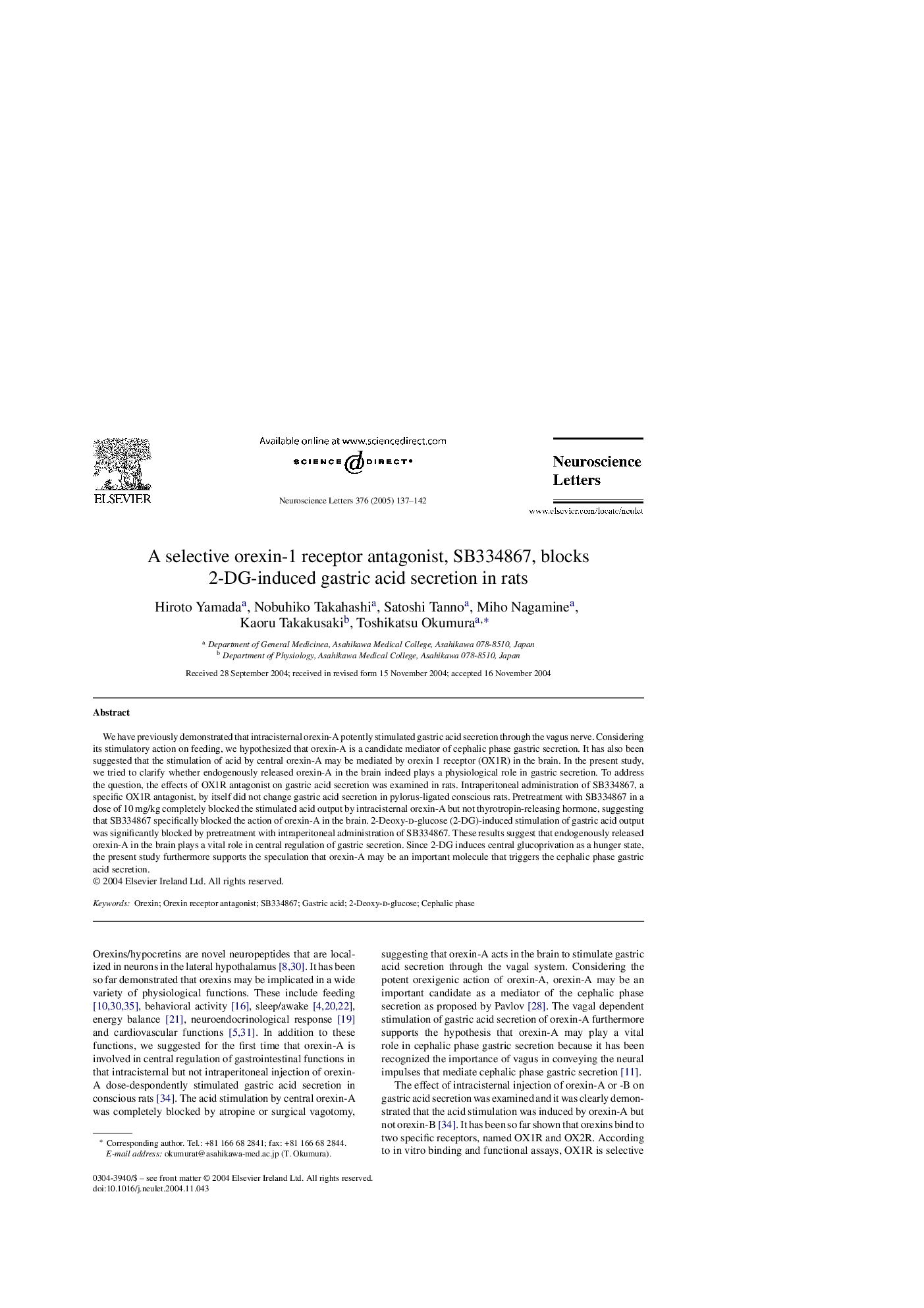| Article ID | Journal | Published Year | Pages | File Type |
|---|---|---|---|---|
| 9429470 | Neuroscience Letters | 2005 | 6 Pages |
Abstract
We have previously demonstrated that intracisternal orexin-A potently stimulated gastric acid secretion through the vagus nerve. Considering its stimulatory action on feeding, we hypothesized that orexin-A is a candidate mediator of cephalic phase gastric secretion. It has also been suggested that the stimulation of acid by central orexin-A may be mediated by orexin 1 receptor (OX1R) in the brain. In the present study, we tried to clarify whether endogenously released orexin-A in the brain indeed plays a physiological role in gastric secretion. To address the question, the effects of OX1R antagonist on gastric acid secretion was examined in rats. Intraperitoneal administration of SB334867, a specific OX1R antagonist, by itself did not change gastric acid secretion in pylorus-ligated conscious rats. Pretreatment with SB334867 in a dose of 10Â mg/kg completely blocked the stimulated acid output by intracisternal orexin-A but not thyrotropin-releasing hormone, suggesting that SB334867 specifically blocked the action of orexin-A in the brain. 2-Deoxy-d-glucose (2-DG)-induced stimulation of gastric acid output was significantly blocked by pretreatment with intraperitoneal administration of SB334867. These results suggest that endogenously released orexin-A in the brain plays a vital role in central regulation of gastric secretion. Since 2-DG induces central glucoprivation as a hunger state, the present study furthermore supports the speculation that orexin-A may be an important molecule that triggers the cephalic phase gastric acid secretion.
Related Topics
Life Sciences
Neuroscience
Neuroscience (General)
Authors
Hiroto Yamada, Nobuhiko Takahashi, Satoshi Tanno, Miho Nagamine, Kaoru Takakusaki, Toshikatsu Okumura,
